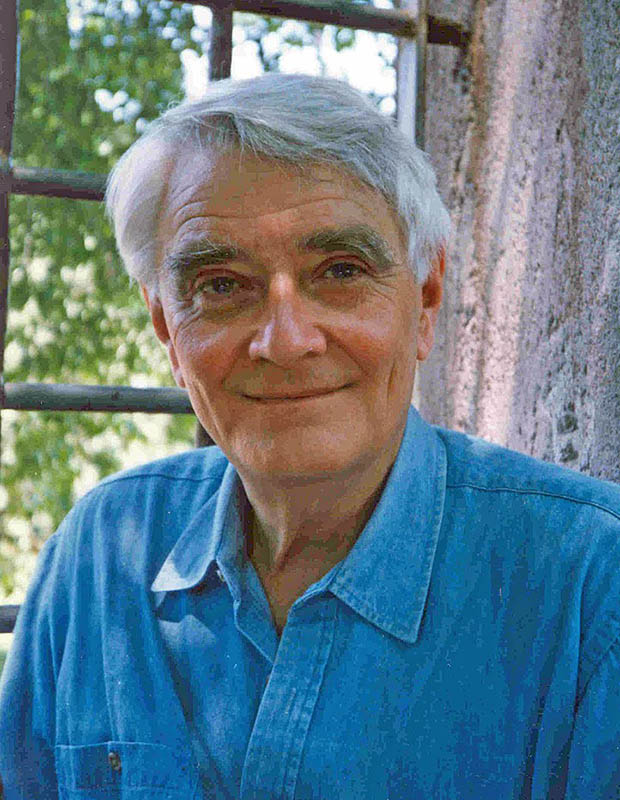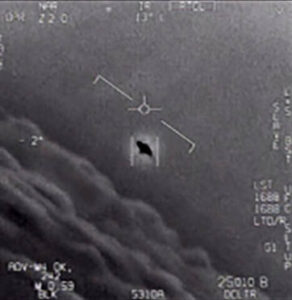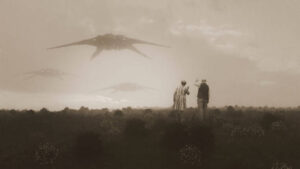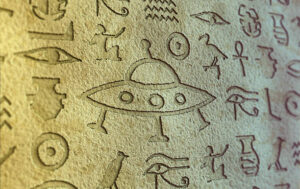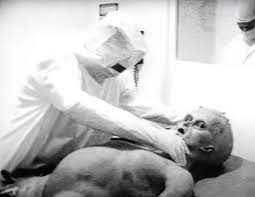Budd Hopkins (1931-2011) was an American artist and prominent UFO researcher who played a significant role in bringing the subject of alien abductions and close encounters to mainstream consciousness. A talented abstract expressionist painter, Hopkins unexpectedly found himself at the forefront of UFO research following his own sighting in 1964. Over the years, he became one of the most influential figures in the field, dedicating much of his life to investigating and documenting alleged extraterrestrial encounters. In this article, we will explore the life and work of Budd Hopkins, his contributions to UFO research, and his lasting impact on the study of alien abductions.
Early Life and Artistic Career
Budd Hopkins was born in Wheeling, West Virginia, in 1931. He studied at Oberlin College and later moved to New York City, where he became an integral part of the abstract expressionist movement. Over the years, Hopkins gained recognition as a talented artist, with his work exhibited in renowned galleries and museums, such as the Whitney Museum of American Art and the Guggenheim Museum.
The Turning Point: A UFO Sighting
Hopkins’ life took an unexpected turn in 1964 when he witnessed a daylight UFO sighting in Cape Cod, Massachusetts. Intrigued by the experience, he began to delve into UFO research, gradually shifting his focus from his artistic career to the study of unexplained aerial phenomena.
Intruders Foundation and Investigative Work
In 1989, Hopkins co-founded the Intruders Foundation, a non-profit organization dedicated to the research and documentation of UFO-related phenomena, particularly alien abductions. Through the foundation, Hopkins conducted extensive investigations into alleged abduction cases, interviewing witnesses, and documenting their experiences.
Hopkins was among the first researchers to identify and study the phenomenon of “missing time” in abduction cases, in which abductees report a gap in their memory or a sense of lost time during their encounters. He also developed hypnotic regression techniques to help abductees recall their experiences, although the reliability of these methods has been subject to debate.
Books and Media Appearances
Budd Hopkins authored several influential books on the subject of UFOs and alien abductions, including “Missing Time” (1981), “Intruders: The Incredible Visitations at Copley Woods” (1987), and “Witnessed: The True Story of the Brooklyn Bridge UFO Abductions” (1996). These books not only documented individual cases but also explored the broader implications of the abduction phenomenon, raising questions about the nature and intentions of the alleged extraterrestrial visitors.
Hopkins made numerous appearances in the media, including television shows, documentaries, and radio programs, where he discussed his research and findings. His work garnered widespread attention, sparking public interest in the subject of alien abductions and shaping the way these encounters were perceived and discussed.
Criticism and Controversy
While Budd Hopkins’ work in UFO research has been highly influential, it has not been without controversy. Critics argue that his use of hypnotic regression may lead to the creation of false memories, casting doubt on the reliability of abductees’ accounts. Additionally, skeptics contend that the abduction phenomenon may be explained by psychological factors or sleep-related experiences, rather than extraterrestrial encounters.
Legacy
Despite the criticism and controversies surrounding his work, Budd Hopkins remains a pivotal figure in the history of UFO research and the study of alien abductions. His dedication to investigating and documenting these enigmatic experiences has contributed significantly to our understanding of the phenomenon and has inspired countless researchers and enthusiasts to explore the mysteries of UFO encounters.
Budd Hopkins passed away in 2011, but his legacy in the field of UFO research and alien abduction studies endures. He helped bring the subject of alien abductions to the forefront of public consciousness and fostered a greater understanding of the complexities surrounding such encounters. His work has influenced generations of researchers, who continue to investigate the abduction phenomenon and its implications.
Hopkins’ work also serves as a reminder of the need for a balanced and critical approach to the study of UFOs and related phenomena. While his methods and conclusions have been subject to debate, his dedication to exploring the unknown has inspired many to pursue the truth behind the enigmatic experiences that continue to captivate our collective imagination.

